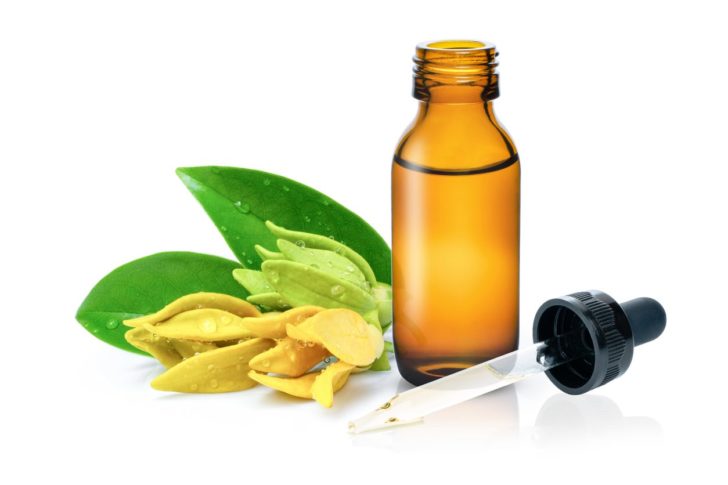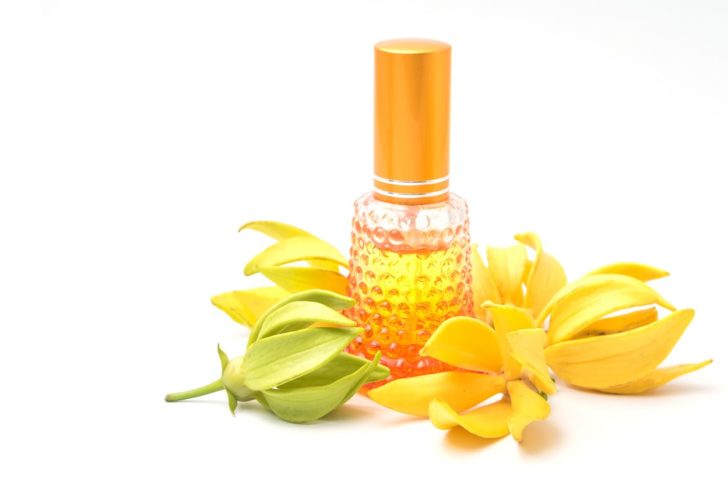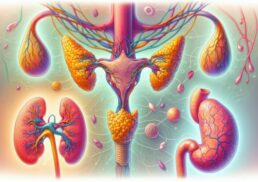Allow us to introduce you to a hidden gem in the world of essential oils: Ylang Ylang. With its sweet, floral scent and an array of health and wellness benefits, Ylang Ylang essential oil has been a cherished natural remedy for centuries. Journey with us as we explore the fascinating history, potent health benefits, aromatherapy uses, and practical applications of this remarkable oil.
In this immersive exploration, we will delve into the rich history and cultural significance of Ylang Ylang oil, along with its unique distillation process. Discover how this versatile oil can support your health, nourish your skin and hair, and create a calming, uplifting atmosphere in your home. Are you ready to unlock the magic of Ylang Ylang essential oil?
Table of Contents
Key Takeaways
Ylang Ylang essential oil has a long history of use and provides numerous health benefits, including antioxidant support, skincare benefits and calming effects.
Aromatherapy with Ylang Ylang offers stress relief, mood enhancement and improved skin & hair care when blended with other oils.
Exercise caution when using by performing patch tests prior to topical application & following safety guidelines from qualified professionals.
The Magic of Ylang Ylang Essential Oil

The alluring aroma of Ylang Ylang essential oil, extracted from the star-shaped flowers of the Cananga odorata plant, has captivated people for centuries. Belonging to the custard apple family, Ylang Ylang oil boasts a rich scent that has found its way into the food, perfume, and cosmetic industries. But, its applications extend far beyond simply delighting the senses. Ylang Ylang oil has been employed in traditional medicine and aromatherapy, offering numerous health benefits such as:
Reducing stress and anxiety
Promoting relaxation and improving sleep
Balancing hormones
Enhancing mood
Boosting libido
Improving skin and hair health
Ylang Ylang oil’s unique distillation process, rich history, and cultural significance make it a truly magical essential oil. Its highly fragrant flowers and sweet scent have earned it the nickname “perfume tree”. Discover the extraction process of this enchanting oil and the ways it has been utilized over the years.
Origin and History
Ylang Ylang essential oil, also known as cananga oil, originates from the Moluccan archipelago in eastern Indonesia. Today, its cultivation has expanded, and the oil is now produced in several countries, including Madagascar, Malaysia, and the Comoros Islands. The first successful distillation of Ylang Ylang oil can be traced back to 1860 by Albert Schwenger, a sailor from Manila.
The captivating aroma of Ylang Ylang essential oil has been cherished for centuries, with its use dating back to ancient civilizations. Its exotic fragrance and health benefits have made it a staple in traditional medicine and perfumery, continuing to enchant people worldwide.
Distillation Process
The extraction of Ylang Ylang essential oil is a delicate process, involving steam distillation of the plant’s flowers. This process yields different grades of Ylang Ylang oil, with each grade offering unique compositions and benefits. Ylang Ylang oil is available in the following grades:
Grade I
Grade II
Grade III
Ylang Ylang Extra, which contains approximately 30 components, including esters, ethers, and phenols.
The fractions of Ylang Ylang oil are commonly used in fragrancing and perfumery applications, contributing to the creation of exquisite scents that capture the essence of the Ylang Ylang plant. The artful combination of Ylang Ylang oil with other essential oils can result in truly mesmerizing fragrances.
Cultural Significance
Given the highly fragrant nature of the Ylang flower, the plant is often referred to as the “perfume tree”. Ylang Ylang oil has been employed in various cultures for centuries, used in religious ceremonies and rituals for its calming and elevating effects.
Its captivating aroma, steeped in history and tradition, continues to be a cherished component of perfumes, cosmetics, and natural remedies worldwide.
Health and Wellness Benefits of Ylang Ylang Oil
Ylang Ylang oil possesses an array of health and wellness benefits that extend far beyond its delightful fragrance. It is known for its antioxidant support, skincare benefits, and calming effects. The oil’s versatility allows it to be used in various ways, from skincare and haircare to aromatherapy and blending.
While research on the health benefits of Ylang Ylang oil is ongoing, there is evidence to suggest that it can be beneficial for individuals with certain conditions when inhaled or applied topically. Now, let’s delve into the specific health and wellness attributes of Ylang Ylang oil.
Antioxidant Support
Ylang Ylang essential oil is a powerhouse of antioxidant support, helping to protect the body from free radicals and oxidative stress. Its potent antioxidant properties can contribute to overall health and well-being, providing a natural defense against environmental pollutants and toxins.
Incorporating Ylang Ylang oil into your daily routine can aid in maintaining a healthy body and mind. Its antioxidant support, combined with its calming effects, make it an essential oil worth exploring.
Skin and Hair Care
Ylang Ylang oil’s nourishing properties make it an excellent addition to skincare routines, addressing acne, oily skin, and promoting a healthy complexion. Rich in anti-inflammatory properties, it can soothe inflammation and irritation, treat acne, and moisturize dry and irritated skin. Additionally, Ylang Ylang oil’s antifungal properties can help clear acne and improve skin clarity.
When it comes to haircare, Ylang Ylang oil is equally impressive. It can nourish and balance oily hair, promoting growth and strength. Adding a few drops of Ylang Ylang oil to your shampoo can help maintain a healthy scalp and vibrant, shiny hair.
Calming Effects
The calming effects of Ylang Ylang essential oil are one of its most notable benefits. It can help:
reduce stress
reduce anxiety
promote relaxation
treat depression
manage anger
Its soothing properties and calming effect make it an ideal oil for creating a peaceful and positive atmosphere.
Incorporating Ylang Ylang oil into your daily life can provide a sense of serenity and well-being. Whether diffused or applied topically, its calming effects can help alleviate stress and promote relaxation, making it a valuable addition to any self-care routine.
Aromatherapy and Blending with Ylang Ylang

Aromatherapy and blending with Ylang Ylang oil can further enhance its benefits and create unique, soothing scents. When combined with other essential oils, Ylang Ylang oil can offer a range of aromatherapy benefits, including:
Stress relief
Mood enhancement
Relaxation
Improved sleep
Increased focus and concentration
Now, we’ll venture into the realm of Ylang Ylang aromatherapy and blending techniques.
Aromatherapy Benefits
Ylang Ylang oil’s sweet scent and calming effects make it a favorite in aromatherapy. It can help relieve stress, enhance mood, and even balance chakras. Creating a relaxing atmosphere with Ylang Ylang oil can provide a sense of tranquility and peace, perfect for unwinding after a long day.
In addition to its calming properties, Ylang Ylang oil also offers a range of other aromatherapy benefits. It can:
Alleviate anxiety
Lower blood pressure
Treat depression
Support healthy skin and hair
By incorporating Ylang Ylang oil into your aromatherapy routine, you can experience a sense of harmony and well-being.
Blending Combinations
Ylang Ylang oil has the capability to mix well with other essential oils like:
Bergamot
Geranium
Grapefruit
Lemon
Marjoram
Sandalwood
Vetiver
This creates a wonderful aroma when all of them combined together. These blending combinations can amplify the healing properties of Ylang Ylang oil and create distinctive, calming fragrances.
Experimenting with different blending combinations can help you discover the perfect scent and benefits tailored to your needs.
Precautions and Safety Tips for Using Ylang Ylang Oil
As with any essential oil, it is crucial to be aware of potential skin sensitivity and follow proper usage guidelines when using Ylang Ylang oil.
Ensure that you take necessary precautions and seek advice from qualified professionals for safe use and enjoyment of this versatile oil.
Skin Sensitivity
Although Ylang Ylang oil is typically well-tolerated, it can cause skin sensitivity for some people. Therefore, performing a patch test before topical application is recommended to prevent any adverse reactions. By applying a small amount of the oil to a limited area of skin and observing any reactions, you can ensure its safe use.
If no reaction occurs within 24 hours, Ylang Ylang oil can be safely used on your skin. However, it is always advised to consult with a healthcare provider or qualified aromatherapy practitioner if you have any concerns or medical conditions.
Usage Guidelines
Following appropriate usage guidelines when using Ylang Ylang oil is advised to guarantee safety and efficiency. This includes proper dilution of the oil with a carrier oil before topical application and consulting with a qualified aromatherapy practitioner when in doubt.
Special caution should be taken when using Ylang Ylang oil during pregnancy or nursing, as well as with children and the elderly. By adhering to these guidelines, you can safely enjoy the numerous benefits Ylang Ylang oil has to offer.
For more info, visit YLANG YLANG OIL – Uses, Side Effects, and More.
Practical Applications and DIY Recipes
Ylang Ylang essential oil’s versatility lends itself to a variety of practical applications and DIY recipes. From skincare and haircare to home fragrance, there are countless ways to incorporate Ylang Ylang oil into your daily routine.
Dive into a selection of popular DIY recipes that highlight the potency and charm of Ylang Ylang oil.
Skincare Recipes
Incorporating Ylang Ylang oil into your skincare routine can help address acne, oily skin, and promote a healthy complexion. For example, you can create a DIY essential oil skin healing blend by combining:
10 drops of Ylang Ylang oil
5 drops of Vanilla Oleoresin
5 drops of Geranium oil
5 drops of Witch Hazel
In a glass bottle, shake the bottle to mix the ingredients, then apply the blend to your skin for a soothing and nourishing treatment.
Another popular skincare recipe is a luxurious body cream with rose water and Ylang Ylang oil. Here’s how to make it:
Combine 1/4 cup of rose water, 1/4 cup of coconut oil, 1/4 cup of shea butter, and 10 drops of Ylang Ylang oil in a bowl.
Mix the ingredients until fully combined.
Store the cream in a glass jar for a hydrating and fragrant moisturizer.
Haircare Recipes
Ylang Ylang oil can work wonders for your hair, providing the following benefits:
Nourishing and balancing oily hair
Promoting growth and strength
Maintaining a healthy scalp
Enhancing vibrancy and shine
To enjoy these benefits, simply add a few drops of Ylang Ylang oil to your shampoo.
Some popular haircare recipes with Ylang Ylang oil include a nourishing hair mask, a balancing hair rinse, and a strengthening hair oil. Experiment with different recipes to find the perfect Ylang Ylang-infused haircare routine for your unique needs.
Home Fragrance Ideas
Ylang Ylang oil’s sweet scent makes it an ideal choice for creating calming and uplifting home fragrances. Whether used in a diffuser blend, room spray, or candle, Ylang Ylang oil can create a serene and inviting atmosphere in your home.
Experiment with blending Ylang Ylang oil with other fragrances, such as:
lavender
bergamot
jasmine
grapefruit
citrus scents like orange and lemon
Discover your favorite combinations and enjoy the soothing and rejuvenating effects of Ylang Ylang oil in your home.
Summary
Ylang Ylang essential oil is a true treasure in the world of natural remedies, offering a wealth of health and wellness benefits, from antioxidant support to skincare and calming effects. Its rich history, unique distillation process, and cultural significance only add to its allure.
Transform your daily routine with the magic of Ylang Ylang oil, incorporating it into your skincare, haircare, and home fragrance practices. Experience the calming, uplifting, and rejuvenating properties of this versatile oil and let it transport you to a world of serenity and well-being.
Frequently Asked Questions
What is the Ylang Ylang oil good for?
Ylang Ylang oil has long been known for its ability to reduce stress, anxiety, and depression. It can also help with inflammatory problems such as arthritis and rheumatism and has a calming sedative effect which helps reduce blood pressure and heart rate. In addition, its aphrodisiac properties make it ideal for enhancing sensuality between couples.
What is the smell of ylang ylang?
Ylang ylang has an exotic, dreamy, and romantic fragrance, featuring floral notes such as jasmine and neroli alongside hints of creamy custard, banana, honey, and powdery rubber.
How do you pronounce Ylang?
Ylang is pronounced ‘EE-lang’ or ‘eye-lang’. It is a fragrant flower popular in perfumes and aromatherapy.
What is the spiritual meaning of ylang ylang?
Ylang ylang is associated with the planet Venus in wiccan tradition and is said to be used as a love charm. Its aroma can help dispel fear and promote self-confidence.
What is the origin of Ylang Ylang essential oil?
Ylang Ylang essential oil, commonly known as cananga oil, has its roots in the Moluccan archipelago in eastern Indonesia.









